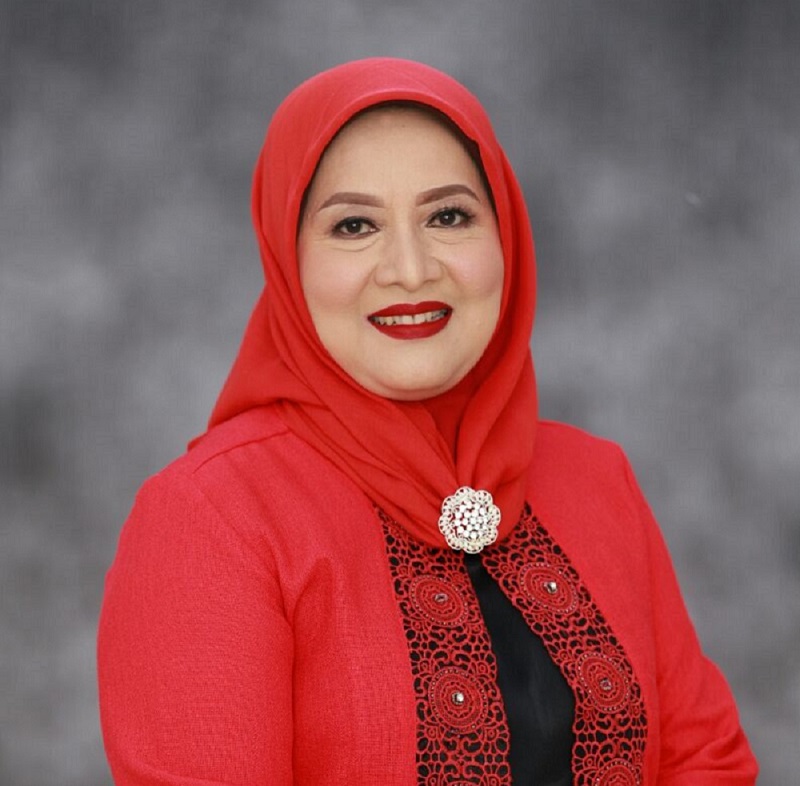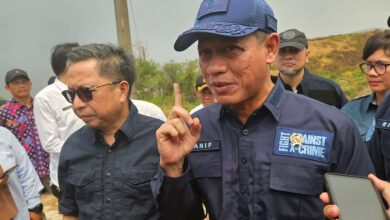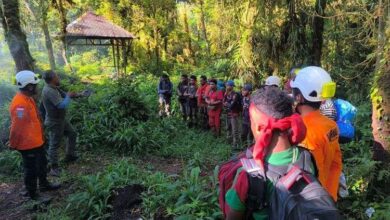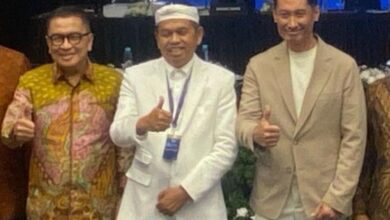Ridwan Kamil Dampingi Menko PMK Tinjau Pelayanan dan Fasilitas RSKIA Bandung
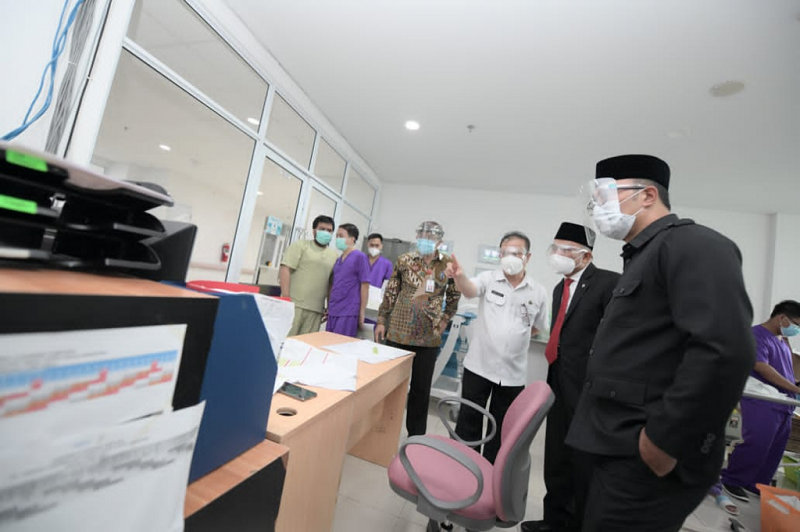
Detiktoday.com – Gubernur Jawa Barat (Jabar) Ridwan Kamil mendampingi Menteri Koordinator (Menko) Bidang Pembangunan Manusia dan Kebudayaan (PMK) Muhadjir Effendy meninjau Rumah Sakit Khusus Ibu dan Anak (RSKIA) Kota Bandung, Rabu (16/6/2021).
Muhadjir mengatakan, kunjungan tersebut dilakukan untuk melihat fasilitas dan pelayanan di RSKIA Kota Bandung. Mengingat, RSKIA Kota Bandung melayani dan memfasilitasi ibu hamil yang terkonfirmasi positif COVID-19.
“Kita hari ini pada sore hari ini meninjau, menyupervisi Rumah Sakit Khusus Ibu dan Anak Kota Bandung. Kenapa kita tinjau, karena di sini ada semacan inovasi yang dilakukan oleh Rumah Sakit (RS) ini yaitu melayani ibu hamil yang kena COVID-19,” kata Muhadjir usai meninjau RSKIA Kota Bandung.
Muhadjir menjelaskan, penanganan untuk ibu hamil di rumah sakit ini sangat tertata rapi. Mulai dari pemeriksaan ibu hamil yang suspek, penanganan pasien yang positif COVID-19, sampai anak dilahirkan.
“Dengan segala penindakan dan kapasitas yang disiapkan, mulai dari pemeriksaan mereka yang suspek, kemudian penanganan mereka yang positif, sampai kemudian ketika dia melahirkan, kemudian anak yang melahirkan itu bisa ditangani, diperiksa ulang untuk dipastikan apakah mereka termasuk yang suspek atau positif kena COVID-19 seperti yang terjadi kepada ibunya. Dan fasilitasnya sangat lengkap,” jelas Muhadjir.
Menurut Muhadjir, RSKIA sudah menangani 400 ibu hamil yang suspek. Dari jumlah tersebut, sekitar 260 ibu hamil positif COVID-19. “Ini menunjukkan bahwa COVID-19 ini sudah tidak pandang bulu, termasuk menyerang mereka-mereka yang hamil dan berisiko kepada anaknya yang kemudian juga kena COVID-19,” ucapnya.
Muhadjir menambahkan, rencananya akan ada penambahan kapasitas untuk menangani pasien COVID-19 di RSKIA Kota Bandung, dari 100 tempat tidur menjadi 150 tempat tidur. Nantinya, RSKIA pun diusulkan tidak hanya untuk ibu hamil dan anak, tetapi juga pasien umum.
“Dan di sini fasilitasnya sangat lengkap dan rencana akan ada penambahan kapasitas. Dan mudah-mudahan ada tambahan dari pemerintah pusat, terutama Kepala BNPB dari kapasitas 100 dinaikan menjadi 150 kapasitas, khusus untuk menangani ibu hamil yang terindikasi atau suspek COVID-19,” katanya.
“Juga dibuka untuk umum. Tentu saja untuk yang umum itu jumlahnya dibatasi karena ini adalah RS khusus ibu dan anak. Dan sekarang sudah menyiapkan untuk menampung, merawat yang kemudian ternyata mengalami serangan COVID-19,” imbuhnya.
Sementara itu, Gubernur Jabar Ridwan Kamil mengatakan bahwa Pemerintah Daerah (Pemda) Provinsi Jabar sudah menyiapkan sejumlah skema untuk mengantisipasi lonjakan kasus COVID-19. Salah satunya, menambah jumlah kamar untuk pasien COVID-19 di rumah sakit rujukan COVID-19.
“Intinya dalam situasi seperti ini, prosedur Jawa Barat sudah siap. Yaitu instruksi menaikkan kapasitas untuk COVID-19 dikonversi dari kamar-kamar yang sifatnya penyakit umum,” ucapnya.
Kang Emil —sapaan Ridwan Kamil— menuturkan, ada sekitar 3.000 tempat tidur baru yang disiapkan untuk pasien COVID-19. Angka ini mengacu pada 30 persen kapasitas rumah sakit-rumah sakit rujukan COVID-19 di Jabar.
“Sekitar 3.000 bed sedang kami siapkan total se-Jawa Barat hasil perhitungan dari 30 persen. Walaupun ada rumah sakit-rumah sakit yang di atas 30 persen (untuk pasien COVID-19). Contohnya, Rumah Sakit Khusus Ibu dan Anak. Dari kapasitas 370 tempat tidur, yang berfungsi untuk COVID-19 sekitar 150-an. Sehingga itu di angka 40 persen lebih,” katanya.



